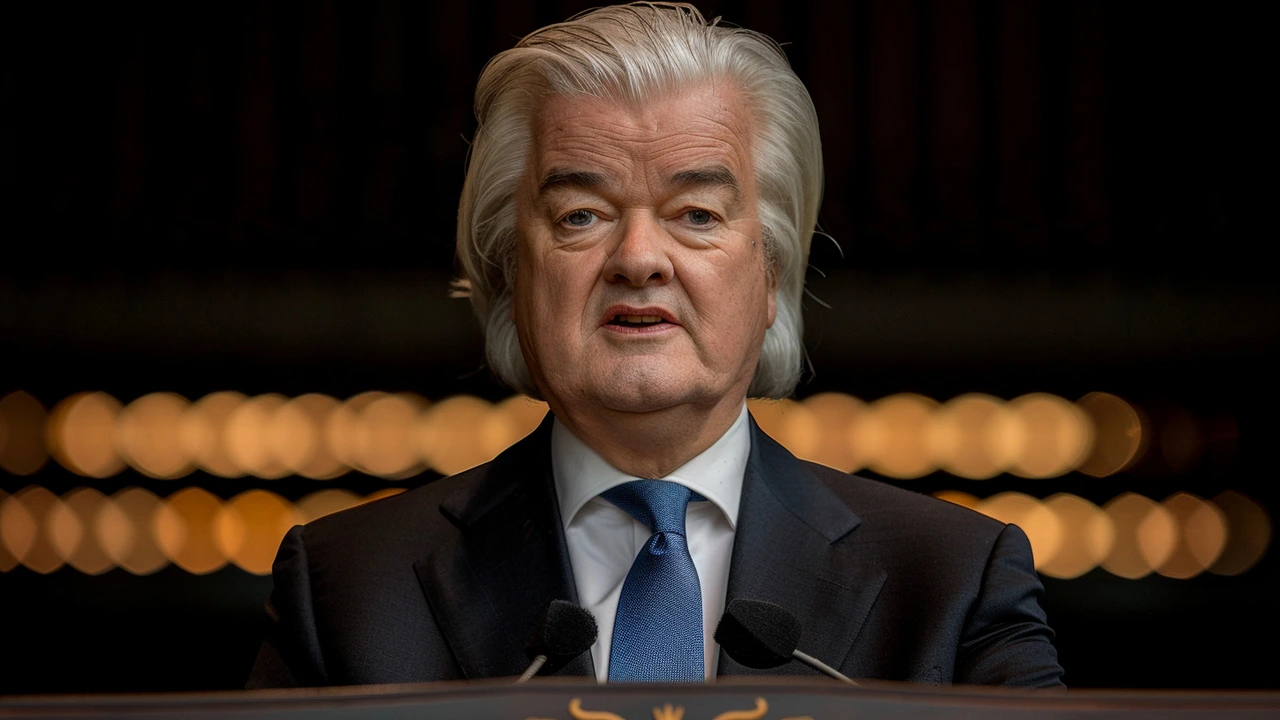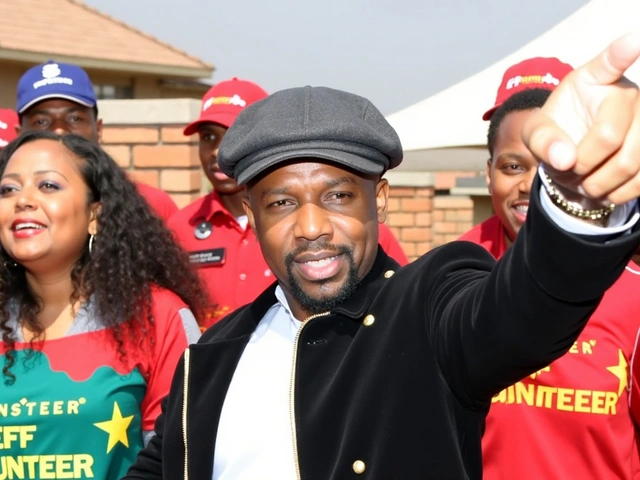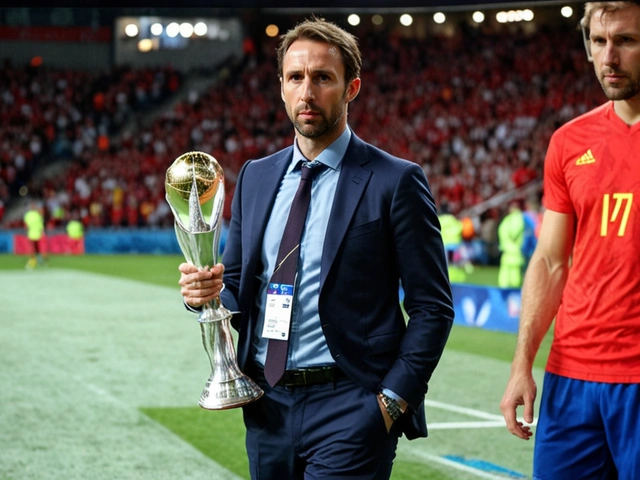Contemplating a Diplomatic Shift
The emerging coalition of four right-wing parties in the Netherlands is stirring significant discussions both domestically and internationally. The draft coalition agreement reveals a plan to strategically time the relocation of the Dutch embassy from Tel Aviv to Jerusalem. If realized, the Netherlands will join the ranks of Papua New Guinea, Kosovo, Honduras, Guatemala, and the United States, who have already made similar moves in recent years.
This political shift is spearheaded by the Party for Freedom, led by the outspoken Geert Wilders, who has long been a prominent advocate for Israel. In the recent November general elections, Wilders’ Party for Freedom secured 37 out of 150 seats in the Dutch lower house, marking a significant gain amidst a highly polarized electorate. The coalition partners include the People’s Party for Freedom and Democracy, the New Social Contract, and the Farmer–Citizen Movement. Despite their political differences, they seem united on several key issues, including the embassy relocation.
Wilders has persistently argued that Jerusalem is the 'only true capital of Israel,' reflecting his broader vision of the city as a symbol of Judeo-Christian civilization. His sentiments mirror those of certain international actors, although most countries still keep their embassies in or around Tel Aviv. The proposed embassy move has not just political but symbolic implications, potentially altering the Netherlands' standing in international diplomacy.
Internal and International Repercussions
The timing of this proposed move comes amid growing concerns over antisemitism in Dutch society. Reports indicate a rise in antisemitic incidents and violence by anti-Israel activists. Moving the embassy could provoke further divisions within the Netherlands, potentially exacerbating tensions between different social and religious communities. Supporters argue that it would demonstrate solidarity with Israel, while critics fear it could alienate certain diaspora groups and escalate local antisemitism.
Another critical element of the coalition agreement is the inclusion of the Holocaust in the integration exam for Dutch citizenship. This requirement underlines the coalition’s commitment to Holocaust education and memory, amid growing worries about historical revisionism and antisemitism. The parties within the coalition see this measure as a step towards fostering broader societal awareness and combating prejudice.
Moreover, the coalition plans to review Dutch asylum and immigration protocols. This review aligns with Wilders' long-standing stance on stringent immigration policies, reflecting broader right-wing concerns across Europe about national identity and security. These plans will likely generate significant debate both inside the Dutch parliament and in the public sphere.
Commitment to Ukraine Amidst Larger Foreign Policy Shifts
In addition to the concerning domestic issues, the draft agreement underscores the coalition's pledge to support Ukraine 'politically, militarily, financially, and morally.' This commitment comes against the backdrop of the ongoing conflict in Eastern Europe and represents a broader alignment of Dutch foreign policy with Western stances against Russian aggression. The clarity and firmness of this support signal the Netherlands' engagement with key geopolitical dynamics and its willingness to contribute to the European security apparatus.
The coalition's foreign policy plans indicate a significant shift from previous Dutch government stances. By aligning with more hawkish and pro-Israel policies, the coalition is poised to redefine the Netherlands' role on the global stage. Such a transformation could have far-reaching consequences, influencing the country's diplomatic ties with numerous international partners.
Uncertainties and Future Directions
Despite these ambitious plans, the position of the prime minister remains undecided. As negotiations continue, the identity of the next head of government could have substantial implications for the successful implementation of these proposals. The coalition’s diverse composition, ranging from far-right to centrist elements, presents both opportunities and challenges for cohesive governance.
As Dutch society grapples with questions of identity, tolerance, and historical memory, the new coalition's approach will come under intense scrutiny. Will the proposed changes foster greater unity or deepen existing divisions? Will a stronger pro-Israel stance bolster international alliances or provoke backlash? These questions will undoubtedly shape the unfolding political landscape in the Netherlands and beyond.
Regardless of the ultimate course of action, the coalition’s draft agreement marks a significant moment in Dutch politics. It encapsulates a broader trend of rising right-wing influence across Europe, reflecting shifts in public sentiment and political priorities. Observers will be watching closely as the Netherlands navigates this complex terrain, balancing domestic imperatives with its evolving role in international affairs.







Patrick Scheuerer May 18, 2024
This isn't about diplomacy-it's about recognizing historical truth. Jerusalem has been the Jewish capital for over three millennia. The Dutch left-wing elite have spent decades pretending the conflict is symmetrical when it's not. The embassy belongs where the government is, not where foreign bureaucrats think it should be. The rest is performative moralizing dressed up as neutrality.
Angie Ponce May 19, 2024
I'm so tired of people acting like moving an embassy is some radical act. It's basic sovereignty. If you believe in a country's right to exist, you honor its capital. The Netherlands has been complicit in enabling anti-Israel hate by pretending Tel Aviv is the center of everything. Time to stop caving to pressure from people who want to erase Jewish history.
Andrew Malick May 20, 2024
The symbolic weight of Jerusalem as a capital is undeniable, but the practical implications are far more complex. The city's status is internationally contested under UN resolutions, and unilaterally relocating embassies undermines the very multilateral framework that has preserved relative stability for decades. This move doesn't resolve anything-it just reconfigures the battlefield. The real issue is whether this strengthens peace or entrenches division.
will haley May 21, 2024
Imagine if France moved its embassy to Berlin because they believe it's the 'true capital of Europe'-wouldn't that be insane? This isn't about justice, it's about performative nationalism. People are so desperate to be seen as 'strong' they'll sacrifice diplomacy for a photo op. The real tragedy? This will make Dutch Jews less safe, not more.
Laura Hordern May 22, 2024
I get why people are excited about this-it feels like standing up for something real, like finally saying 'we see you, Israel.' But let's be real: the embassy move is just one piece of a much bigger puzzle. The Holocaust inclusion in the citizenship exam? That's actually powerful. It's not just about Israel-it's about saying, 'we will not forget, and we will not let this history be twisted.' That’s the real legacy here. The embassy? That’s the headline. The education? That’s the revolution.
Brittany Vacca May 23, 2024
I think this is a very meaningful step toward recognizing the deep historical ties between Jerusalem and the Jewish people. I hope this leads to more unity and less division. 😊
Lucille Nowakoski May 25, 2024
I really appreciate how this coalition is tying Holocaust education into citizenship. That’s not just policy-that’s moral leadership. Moving the embassy might be controversial, but making sure every new Dutch citizen understands what happened in the 1940s? That’s how you build a society that doesn’t repeat its worst mistakes. This isn’t about picking sides-it’s about remembering who we are.
Benjamin Gottlieb May 25, 2024
The relocation isn't merely a geopolitical recalibration-it's a semiotic rupture in the liberal international order's epistemic hegemony. By centering Jerusalem as the sovereign locus of Israeli statehood, the Dutch coalition is performing a deconstruction of the Tel Aviv-centric cartographic imaginary that has functioned as a discursive tool of geopolitical appeasement. The concomitant institutionalization of Holocaust pedagogy in civic formation represents a performative reclamation of historical agency, effectively neutralizing the epistemic violence of revisionist narratives. This is not nationalism-it's epistemological sovereignty.
simran grewal May 27, 2024
Oh wow, the Dutch are finally doing what the U.S. did years ago. Took them long enough. Meanwhile, their universities are still teaching that Israel is the real oppressor. This move is just lipstick on a pig-unless they start deporting the anti-Israel agitators too, it's all theater.
Angela Harris May 27, 2024
I'm just here to say I didn't expect to care about this, but I do now.
Vinay Menon May 29, 2024
Honestly, I think the most important part isn't the embassy. It's the Holocaust being part of the citizenship test. That’s the kind of thing that sticks with people. It’s not about politics-it’s about memory. If you’re going to be Dutch, you need to know what happened. That’s not just education. That’s responsibility.